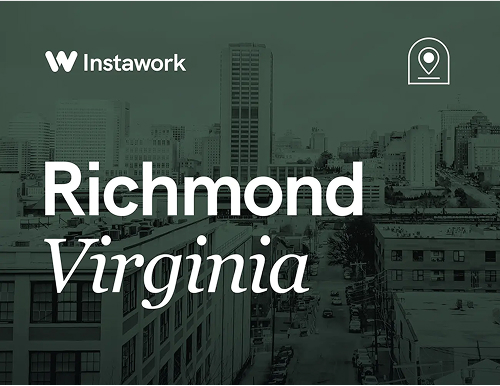
Where will Baltimore find the workers it needs?
April 20, 2023
•
min

What pandemic? The long boom continues in Raleigh-Durham
June 29, 2023
•
4
min

4 Ways to Attract and Recruit Hospitality Staff
September 8, 2023
•
6
min


The labor market in the Richmond metropolitan area is in the midst of a major transformation. High-paying jobs are on the rise, but they haven't yet brought along employment in other occupations. At some point, this gap will have to start closing.
When it does, people in lower-paid roles will also benefit, and none too soon. Though the average weekly income for the area is about $1,300, there are pockets both on the outskirts and near the center where the averages are below $900. And despite its diversity, even the city of Richmond remains highly segregated. Can Richmond grow in a way that doesn't leave anyone behind?
Richmond has long been an important logistics hub for the mid-Atlantic states, a role supercharged by the boom in e-commerce during the Covid-19 pandemic. But logistics jobs aren't the only ones growing in the Richmond area; a raft of highly-paid jobs in business, finance, and the professions have also arrived:

As you might expect, growth in these kinds of jobs tends to raise average pay rates, too. Here's how hourly earnings in the Richmond area have compared to the national average since January 2020:

In How Hourly Workers are Migrating Across the U.S.
In just the first year of the pandemic, average hourly earnings in the Richmond area rose by about 10 percentage points more than earnings at the national level. This difference has shrunk slightly in the past year but is still noticeable. There's also been a decrease in hours worked per week:

Weekly hours have fallen gradually at the national level, but in the Richmond area they've come down much more quickly. Again, this hints at the transformation of the labor market; people in white-collar jobs tend to work fewer hours.
Together, the jobs in logistics, finance, and professional roles have contributed to an overall increase in employment of about 21,000, or 3%, since January 2020. And when overall employment rises, we also expect to see more jobs in the service fields where workers spend their money. Yet that hasn't happened:

In-person jobs in leisure and hospitality, private education and health, and retail trade are still below their pre-pandemic levels, in contrast to overall employment. To be sure, these industries lost a lot of workers when the pandemic shut them down, and it has taken time for them to recover. But in the cases of retail trade and private education and health, the gap with overall employment seems to have stopped closing.
It's not had to come up with possible reasons for the divergence. For retail trade, the shift to buying more goods online may have become permanent. If the people taking the new jobs in the Richmond area are young professionals, then they might not need more private education for themselves or any kids. They won't need as much health care as older, younger, or child-bearing people, either.
These gaps will have to close eventually, but the gap in leisure and hospitality employment is already critical now. To help fill it, we've expanded our operations in the Richmond area. We're already listing hundreds of shifts per month, and there's no end in sight for Richmond's growth.
These links offer more information:
Bureau of Labor Statistics Economic Summary
Workforce data (City of Richmond)
Labor market information (Virginia Employment Commission)
Research and data (Greater Richmond Partnership)
These metrics, derived from data aggregated across the Instawork platform, compare the two weeks starting 7/6/2023 to the previous two weeks. To control for the overall growth of the Instawork marketplace, only shifts involving businesses that booked shifts in both periods are included:
To receive future briefings and data insights from our Economic Research team, please subscribe below. Follow Daniel Altman on Twitter at @AltmanEcon or on LinkedIn.